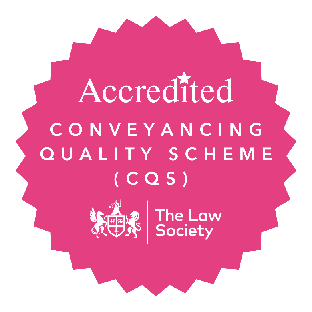Request a call back
Data & Privacy Information
We will store your data securely for 18 months and use it only to respond to your enquiry. We will not share your data without your consent, except where required by law. You have rights under data protection legislation; see www.ico.org.uk for more information. View our full Data & Privacy page for further details.
What is a Power of Attorney?
A ‘Power of Attorney’ is a document in which you appoint one or more persons to act on your behalf. This can be for a specific purpose or period in time, for example, to deal with a house sale whilst you are on holiday. Or it can be more general and can last indefinitely. Most types of Power of Attorney can only be used where you, the donor, retain mental capacity. The exceptions to this rule are if you have an Enduring Power of Attorney or Lasting Power of Attorney in place.
Lasting Power of Attorney
There are two types of Lasting Power of Attorney (often referred to as LPAs) :
Lasting Power of Attorney for Property and Financial Affairs
Read More
Lasting Power of Attorney for Health and Welfare Matters
Read More
The documents are broadly similar to each other in that you can appoint one or more Attorneys to act for you – you can also appoint ‘replacement’ Attorneys. If you have more than one Attorney you then have to decide whether they should act ‘jointly’ or ‘jointly and severally’. We will advise you on the advantages and disadvantages of each type of appointment when taking your instructions.
Once the documents have been drawn up they must be signed by you (the ‘donor’), the Certificate Provider (usually one of our experienced Wills and Probate Solicitors) and all the Attorney(s) named in the documents.
Finally, before they can be used, the LPAs have to be registered with the Office of the Public Guardian.
LPA for Property and Financial Affairs
Your LPA for Property and Financial Affairs allows your Attorney(s) to make decisions about matters related to your finances. You have to decide whether to allow your Attorney(s) to make decisions and act on your behalf as soon as the LPA has been registered with the Office of the Public Guardian or only when you lack mental Capacity.
If you choose the first option then, while you still have mental capacity, your Attorney(s) can only act with your consent. If you later lose capacity, they can continue to act on your behalf for all decisions covered by the LPA. This option can be useful if you are able to make your own decisions but there’s another reason you want your Attorney(s) to help you – for example, if you are away on holiday, or if you have a physical condition that makes it difficult to visit the bank, talk on the phone or sign.
Examples of how the Property and Financial Affairs LPA can be used:
- Make decisions about your money and tax
- Pay your household or care bills
- Manage your bank accounts, building societies and investments
- Use your money to buy the things that you need
- Sell or buy a property on your behalf
- Deal with your pensions and benefits
LPA for Health and Welfare Matters
Your LPA for Health and Welfare can only be used when you cannot make decisions for yourself due to a lack of mental capacity. It allows your Attorney(s) to make practical decisions about day to day matters which are not to do with money and property, but are to do with how you are being looked after.
Examples of how the Health and Welfare LPA can be used:
- Make decisions about and organise your day to day care
- Make decisions about and organise your diet
- Discuss your medication with medical professionals
- Decide where you should live
- Decide whether you should receive medical treatment
Other types of Power of Attorney
You can find out more about other types of Powers of Attorney below.
Enduring Power of Attorney
Enduring Powers of Attorney (EPAs) were replaced by Lasting Powers of Attorney in 2007.
Up until 2007 it was possible to create an EPA which allowed your Attorney(s) to deal with your property and finances. It was not possible to set up an EPA for health and welfare matters.
Although similar in some ways to the LPA for Property and Financial Affairs the EPA could be used as soon as it was created and only needed to be registered with the Office of the Public Guardian if the ‘donor’ lost or began to lose mental capacity.
If you have a valid EPA in place then this could still be used and you would not necessarily have to replace it with a Lasting Power of Attorney.
However, if you have any concerns about an EPA we would strongly recommend that you contact one of our Wills and Probate Solicitors to arrange a free review of the document.
General or ‘Ordinary’ Power of Attorney
These can be created and used if you have an immediate need to appoint an Attorney for a specific purpose or period of time. Some can only be used for a year whilst others can be used for longer.
We sometimes advise putting a General Power of Attorney in place pending LPAs being registered with the Office of the Public Guardian – as this process can take up to 20 weeks. For example, the donor becomes physically infirm so can no longer sign documents and there is an immediate need for the Attorney(s) to act. If the donor loses capacity the General Power of Attorney can no longer be used.
What happens if I don’t have a Power of Attorney in place?
While ever you have mental capacity to do so you can set up LPAs. If you lose capacity and there are no LPAs or an EPA in place then the only option is for someone (usually a member of your family) to make an application to the Court of Protection for their appointment as a ‘Deputy’ to manage your financial affairs. The process for doing this is both costly and slow – it can take up to 6 months for an Order to be made by the Court and can cost in the region of two to three thousand pounds.
How can we help?
Our experienced solicitors will be happy to meet with you to advise on the possible benefits of setting up LPAs and the options open to you.
Our Fees for Lasting Powers of Attorney
Our fees include meeting with you to take your instructions, advising you and preparing the documents for your approval. Once approved, we will meet with you again to ‘execute’ the documents. We will usually act as the ‘Certificate Provider’. Once signed by you we then arrange for the documents to be signed by all Attorneys before dealing with the registration of the documents with the Office of the Public Guardian. Finally, we provide you with ‘certified copies’ of the LPAs for your use and we arrange free safe storage of the original documents.
Wherever VAT is shown below it is payable at 20%.
Single Person
One LPA (e.g. Property and Financial Affairs)
£550 plus VAT (£660)
Two LPAs (i.e. both types)
£700 plus VAT (£840)
A Couple
Two LPAs (e.g. Property and Financial Affairs)
£700 plus VAT (£840)
Four LPAs (i.e. both types for each person)
£1000 plus VAT (£1200)
Disbursement fees for LPAs
There is a Court Registration Fee of £92 per document. In some circumstances the Court may waive or reduce the Court Fee:
- Your income is under £12,000 per annum
- You receive means tested benefits
- Your receive council tax support or reduction
Get In Touch
Give our team a call on 0116 201 8566 or contact us through our online enquiry form on our contact page.
Services
Why Choose Us?
Over 30 years' experience
LOCAL FIRM RUN BY LOCAL PEOPLE
MORE THAN FIFTY 5 STAR REVIEWS
LEGAL SERVICES
OTHER SERVICES
We cover a range of legal services here at Dodds Solicitors. We provide expert advice and professional legal services for clients in and around Leicester.
Contact us today, or give our office a call on 0116 201 8566.










